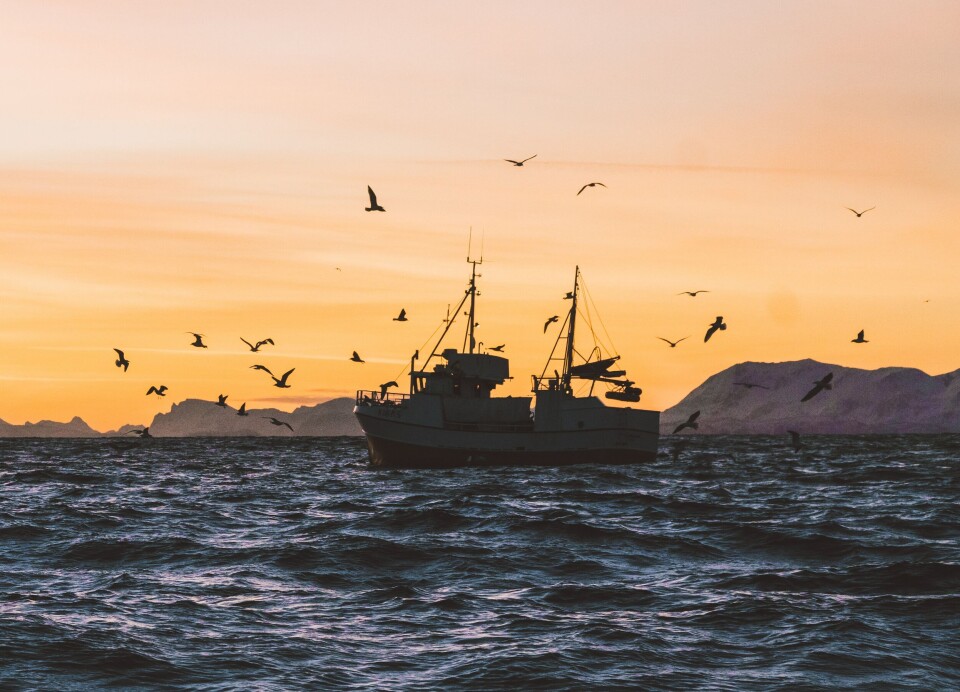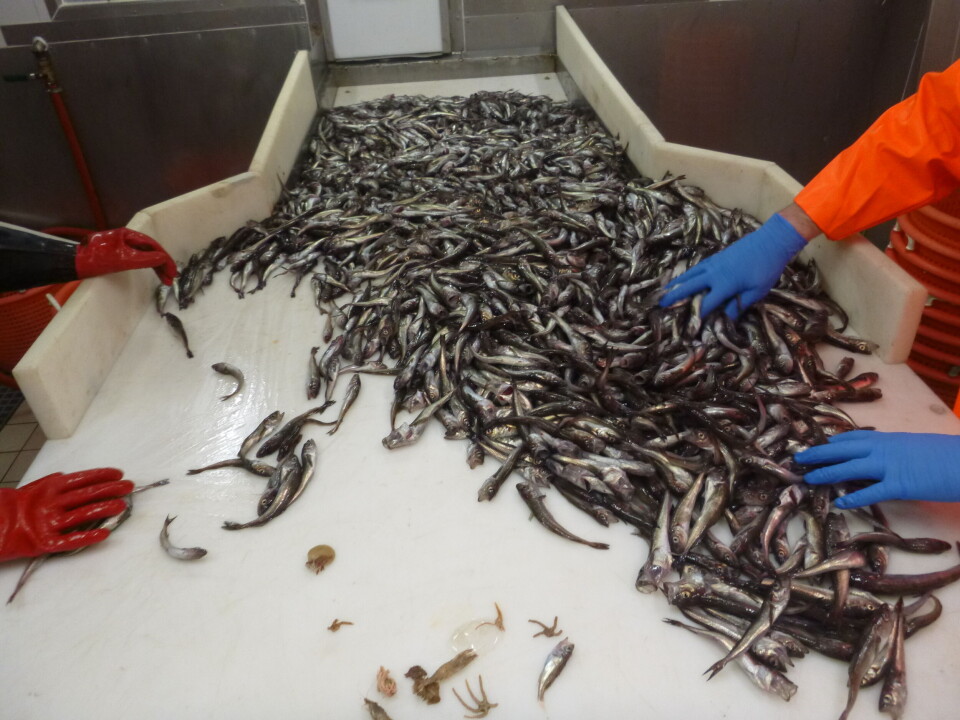THIS CONTENT IS BROUGHT TO YOU BY UiT The Arctic University of Norway - read more

Marine heatwaves do not affect fish
Researchers are surprised by what the study shows.
Long periods of unusually warm ocean temperatures, known as marine heatwaves, can have devastating effects on marine ecosystems and have been linked to widespread coral bleaching, harmful algal blooms, and abrupt declines in commercially important fish species.
However, a new study has found that marine heatwaves generally have not had lasting effects on the fish communities that form the basis for many of the world's largest and most productive fisheries.

The research was recently published in the scientific journal Nature.
“As of now, we see no effects of marine heatwaves on the fish communities. But we know that fish communities are affected by temperature, so heatwaves could still affect fish in the future,” Laurene Pecuchet says. She is one of the researchers behind the study, and an associate professor at UiT The Arctic University of Norway.
248 marine heatwaves
The researchers have used data from long-term scientific trawl surveys on the continental shelf in North America and Europe from 1993 to 2019.
The analysis included 248 marine heatwaves with extreme sea bottom temperatures during this period.
The trawl surveys were carried out by towing a net above the seafloor, to look at the amount of bottom-dwelling species that include commercially-important fish species such as flounder, pollock, haddock, redfish, and halibut. Around 82,000 different trawls are included in the study, with over 1,700 different fish species from both the Pacific and Atlantic oceans.
The researchers looked for effects on fish biomass and composition of species in the fish community the year after a marine heatwave. To their surprise, they found no evidence that marine heatwaves generally have significant effects on regional fish communities.
“There is an emerging sense that the oceans have some resilience, and while they are changing in response to climate change, we don’t see evidence that marine heatwaves are wiping out fisheries,” Alexa Fredston, the lead author of the study, says.
She is an associate professor at the University of California.
Although declines in biomass did occur after some marine heatwaves, the researchers found that these cases were the exception, not the rule. Overall, they found that the effects of marine heatwaves are not distinguishable from the natural variability in these ecosystems.

Can find hiding places
Laurene Pecuchet says that this is the first study on heatwaves in the ocean that has studied the effect on fish species that live far out at sea.
“Fish move and they can find hiding places where the water can be a little colder,” Pecuchet says.
She explains that in coastal areas it can be worse. There are species that do not move, such as kelp and coral, but also fish that live more in one location for most of the year. These areas and these species are more affected by such temperature changes.
“Cod that migrate may not be as affected by heatwaves. While coastal cod may be more affected because they do not migrate as much,” Pecuchet says.
She emphasises that this has not been studied much yet.
Tropicalisation
In addition to assessing the impact on biomass, the researchers looked at whether marine heatwaves caused changes in the composition of fish communities. For instance, it could lead to a loss of species associated with cold water and an increase in species associated with warm water.
This phenomenon is what the researchers call tropicalisation.
“Tropicalisation has been associated with long-term warming of the oceans, but we saw no signs that this is the case with marine heatwaves,” Pecuchet says.
The researchers defined marine heatwaves as periods of more than five days of extreme sea bottom temperatures for that region and time of year.
By extracting the effects of long-term ocean warming trends, they were able to distinguish episodes of extreme warming on top of the long-term trends.
“The findings suggest that fish may be able to find safe harbours by moving to areas with cooler water during these extreme events,” the marine biologist says.
Climate change in the ocean
Pecuchet says that the North Atlantic this year was the warmest ever recorded. This summer is not included in the data the researchers used in this study.
In the so-called Paris Agreement, countries have set a goal that we must work together to ensure that the average global temperature does not increase by more than 1.5 degrees.
“If anything, this study shows the importance of staying below 1.5 degrees. Today we are about 1 degree warmer than pre-industrial levels, and it seems that fish are handling the effects of the heatwaves at the present time. But we do not know what the effect will be if the temperature continues to rise. As long as we stay below a 1.5-degree increase, there is still hope, but that involves drastically reducing emissions,” Pecuchet concludes.
Reference:
Fredston et al. Marine heatwaves are not a dominant driver of change in demersal fishes, Nature, 2023. DOI: 10.1038/s41586-023-06449-y

This content is paid for and presented by UiT The Arctic University of Norway
This content is created by UiT's communication staff, who use this platform to communicate science and share results from research with the public. UiT The Arctic University of Norway is one of more than 80 owners of ScienceNorway.no. Read more here.
More content from UiT:
-
AI can help detect heart diseases more quickly
-
Why does Norway need its own AI law?
-
Researchers reveal a fascinating catch from the depths of the sea
-
How can we protect newborn babies from dangerous germs?
-
This is how AI can contribute to faster treatment of lung cancer
-
Newly identified bacterium named after the Northern Lights is resistant to antibiotics




































